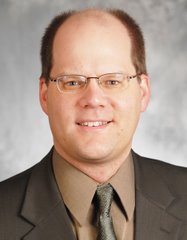Weeks of December 16 & 23, 2007
Here's a link to a state guide that I found useful, and which you might want to pass along to your local school. The text is from the MPCA.
Healthy Sustainable Schools: Guide & Assessment Tool
- Guide (65 p.) to the many physical/operational aspects of a school that can be changed.
- Assessment Tool (60 p.) - a checklist - for walking through school buildings and documenting what needs to be done to make improvements.
Aimed at motivated parents and school officials committed to making improvements, the Guide helps advocates for change sell their recommendations by summarizing the many benefits of a healthier school, which include:
- Enhanced student health and performance
- Higher performing school buildings with reduced operating & maintenance costs
- Reduced environmental impacts
- Increased student attendance
- Increased staff satisfaction
The Guide covers the following topics under the headings of Buildings & Operations, Reduce / Reuse / Recycle, Health & Wellness, and Toxicity Reduction:
- Green building; energy and water conservation
- Smart growth; building location / community adjacencies /size
- Environmentally preferable purchasing; green cleaning
- 3R options; paper and food waste reduction; composting
- Indoor air quality; integrated pest management
- School bus emissions; mercury, lead, chemicals management
- Nutrition
- Free Topic Experts and Resources
- Getting Started
- Establishing a Team
- Building Awareness and Support (includes model policy statements)
- School Assessment Forms
- Final Tips
View and download the Guide and Assessment Tool at the web site above, where you will also find 6 school case studies. Three of these 5- to 8-page studies are from pilot projects that used and refined the Guide and Tool. For those school leaders working on an improvement project, contact the MPCA's Linda Countryman (linda.countryman@state.mn.us; 651/215-0269) for a free printed copy of this resource and for additional assistance.
Schedule: On Tuesday, December 18th, I did an interview about the district for House Public Information Services. The ten-minute interview will be on my House web site soon. In the afternoon, I attended a meeting of some of my colleagues on internal efficiencies. In the evening, I attended a meeting of the House DFL Caucus. On Wednesday, December 19th, I chaired the second meeting of the Subcommittee on Drinking Water Source Protection. Testifiers included the DNR, the MN Geological Survey on its county atlas program, the U.S. Geological Survey (USGS) on recharge of groundwater, and the University of MN. The goal of the day's session was to get a better understanding of the science of water, especially groundwater. In the evening I met with several members of the Shoreview Sierra Communities group about drinking water issues.
Visitors:
Constituent contacts: Shoreview resident supporting state education tax on wealthier school districts to help support less wealthy ones; Lino Lakes resident against an NTSB recommendation that state require motorcyclists to wear helmets; two Shoreview residents and one Circle Pines resident against greater government involvement in health care (see previous post on the Minnesota Majority e-mail campaign on this); Lino Lakes resident against DNR position to put down a bear in northern MN that is hibernating under a cabin; Shoreview residents supporting universal health care; Shoreview resident about Board of Medical Practice; Shoreview resident about a local election issue; Shoreview resident asking about property tax computation; Shoreview resident against HF635 relating to wireless regulation; Circle Pines resident supporting state acquisition of proposed Lake Vermillion state park